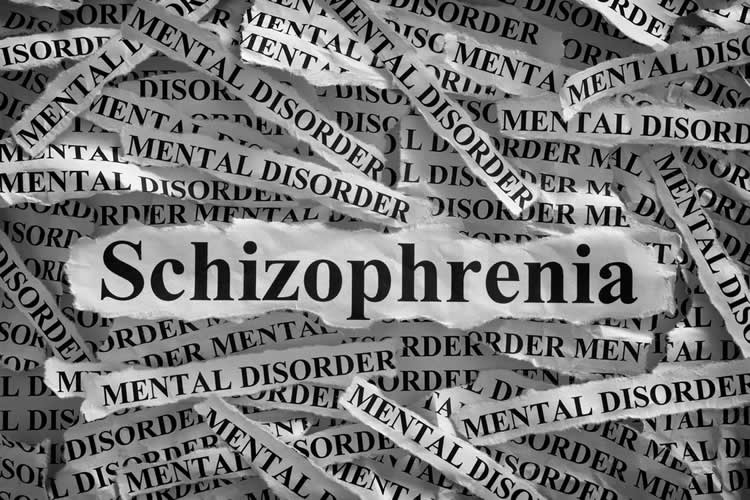Summary: African Americans who suffer from major depressive disorder are more likely to be misdiagnosed as suffering from schizophrenia than people from other ethnic or racial groups. Findings suggest doctors may be putting more emphasis on psychotic symptoms, rather than depressive symptoms when assessing African American patients.
Source: Rutgers University
African-Americans with severe depression are more likely to be misdiagnosed as having schizophrenia, according to a new Rutgers study.
The study, which appeared online prior to being published in the February 2019 issue of the journal Psychiatric Services, examined the medical records of 1,657 people at a community behavioral health clinic that included screening for major depression as part of its assessment for schizophrenia in new patients.
“By definition, schizophrenia is a diagnosis of exclusion: Clinicians must rule out other potential causes of symptoms, including mood disorders, before the diagnosis of schizophrenia is given,” said Michael Gara, a professor of psychiatry at Rutgers Robert Wood Johnson Medical School and a faculty member at Rutgers University Behavioral Health Care. “However, there has been a tendency for clinicians to overemphasize the relevance of psychotic symptoms and overlook symptoms of major depression in African-Americans compared with other racial or ethnic groups. No studies show that African-Americans with schizophrenia are more likely to also have major depression.”
The study, which looked at 599 blacks and 1,058 non-Latino whites, found that clinicians failed to effectively weigh mood symptoms when diagnosing schizophrenia among African-Americans, suggesting that racial bias, whether conscious or subconscious, is one factor in the diagnosis of schizophrenia in this population.
Other factors include genetics, poverty, and discrimination, as well as symptoms caused by infections and malnutrition early in life. “Individuals from a racial minority group also might feel hopelessness or mistrust when being assessed by someone from a racial majority group, which could affect how they act and how the clinician interprets symptoms,” Gara said.
The findings suggest that clinicians put more emphasis on psychotic than depressive symptoms in African-Americans, which skews diagnoses toward schizophrenia even when these patients show similar depressive and manic symptoms as white patients.
“Inaccurate diagnosis can have serious consequences,” Gara said. “Mood disorder treatments differ from those for schizophrenia, and the prognosis for these conditions is typically more positive than for schizophrenia. These patients who may have major depression with psychotic features or bipolar disorder and who are misdiagnosed with schizophrenia do not receive the optimal treatment, putting them at risk for the worsening of the underlying disease process or for suicide. Also, the side effects of medication taken for schizophrenia, such as diabetes and weight gain, can be serious.”

The researchers recommend that screening for major depression be required when assessing black patients for schizophrenia.
The study supports extensive previous research done by co-author Stephen Strakowski of Dell Medical School on how overemphasis of psychotic symptoms in African-Americans can contribute to misdiagnosis of schizophrenia spectrum disorders.
Source:
Rutgers University
Media Contacts:
Patti Verbanas – Rutgers University
Image Source:
The image is adapted from the Rutgers University news release.
Original Research: Closed access
A Naturalistic Study of Racial Disparities in Diagnoses at an Outpatient Behavioral Health Clinic”
Michael A. Gara, Ph.D., Shula Minsky, Ed.D., Steven M Silverstein, Ph.D., Theresa Miskimen, M.D., Stephen M. Strakowski, M.D. Psychiatric Services. Published Online:10 Dec 2018 doi:10.1176/appi.ps.201800223
Abstract
A Naturalistic Study of Racial Disparities in Diagnoses at an Outpatient Behavioral Health Clinic
Objective:
The authors examined electronic medical record (EMR) outpatient data to determine whether African Americans with schizophrenia or schizoaffective disorder were more likely than non-Latino whites to screen positive for major depression.
Methods:
EMR data for 1,657 patients at Rutgers University Behavioral Health Care certified community outpatient clinics were deidentified and accrued for 9 months starting July 1, 2017. A Fisher’s exact test was used to compare differences in the proportion of patients with positive screens for major depression (cutoff score of ≥15 on the nine-item Patient Health Questionnaire) among African-American and non-Latino white patients diagnosed as having schizophrenia or schizoaffective disorder.
Results:
Among patients diagnosed as having schizophrenia, African Americans were more likely than non-Latino whites (p<.003) to screen positive for major depression. The between-group difference in positive screens was not significant among patients diagnosed as having schizoaffective disorder.
Conclusions:
The results are consistent with findings from a large body of literature suggesting that racial differences in the diagnosis of schizophrenia in the United States result in part from clinicians underemphasizing the relevance of mood symptoms among African Americans compared with other racial-ethnic groups. If the results are replicated, a case could be made that routine screening for major depression in community mental health settings could reduce racial disparities in schizophrenia diagnoses.






